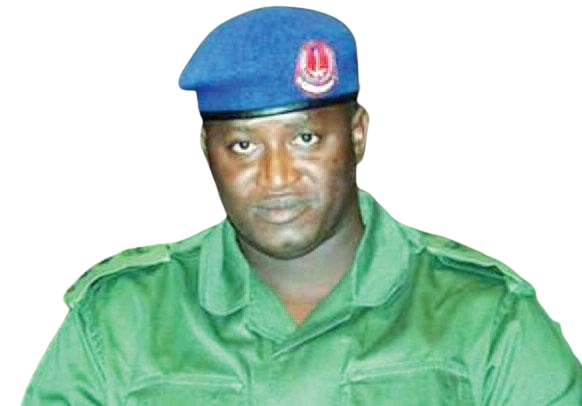By Yankuba Jallow with New Narratives
The Gambian government has ordered a coroner’s inquest into the death of Brigadier General Bora Colley, a former military officer accused of grave human rights violations under ex-president Yahya Jammeh’s regime. Colley, who had been in custody since August 2024 after voluntarily returning from exile, died on March 9, 2025, while receiving medical treatment.
The inquest, which will be presided over by Principal Magistrate Dawda Fatty of the Bundung Magistrate’s Court, aims to determine the official cause of Colley’s death. No date has been set for the hearing.
The Gambia Armed Forces confirmed Colley’s death in a press release, stating:
“Brigadier General Colley voluntarily returned to The Gambia on 9 August 2024, after eight years of self-imposed exile, citing deteriorating health conditions.”
Following his return, Colley was taken into state custody due to his alleged role in serious human rights abuses, as documented in the Truth, Reconciliation, and Reparations Commission report.
The statement added:
“While in custody, his medical condition was assessed and found to require continuous medical monitoring, which was provided by the state. Despite these efforts, he succumbed to his medical condition on 9 March 2025.”
The military expressed its condolences to Colley’s family while reaffirming the government’s commitment to justice and accountability.
Legal Basis for the Inquest
The Coroner’s Inquest Act of The Gambia, first enacted in 1940 and last amended in 1957, provides the framework for investigating deaths in state custody. The Act mandates an inquest when a person dies in police or prison custody, and empowers the Chief Justice to authorize an inquest at the request of the Attorney General.
Attorney General Dawda Jallow submitted the request for the inquest, citing the need for transparency regarding Colley’s death. The Act also grants the coroner the authority to order a post-mortem examination and prohibit burial until an inquiry is completed.
Bora Colley and the Junglers: A Troubled Legacy
Colley was a high-ranking officer under Jammeh and a member of the infamous Junglers, a paramilitary unit accused of extrajudicial killings, enforced disappearances, and torture. The Truth Commission, in its final report, implicated Colley in numerous crimes, including:
- The 2006 killing and torture of intelligence chief Daba Marenah and four others – The victims were allegedly executed by the Junglers, and their bodies were never recovered.
- The 2004 assassination of journalist Deyda Hydara, co-founder of The Point newspaper, who was a vocal critic of Jammeh’s dictatorship.
- The unlawful detention and abuse of political prisoners at Mile 2 Prison, where Colley served as commandant.
- Enforced disappearances and secret executions.
- Systematic torture of detainees.
- The 2005 massacre of dozens of West African migrants, including Ghanaians and Nigerians.
The Truth Commission concluded that at least 250 people died under Jammeh’s rule, many at the hands of the Junglers. It recommended prosecution of Colley, along with other former Junglers, for crimes against humanity.
The Path to Justice: Special Criminal Division and Prosecutor’s Office
The Gambian government has set a timeline for prosecuting Truth Commission-recommended cases, spanning from the first quarter of 2025 to the fourth quarter of 2027. A Special Criminal Division of the High Court has been established, with appointed judges awaiting case transfers.
A special prosecutor, scheduled to assume office this month, will lead investigations and trials. Victims’ groups have called for urgency in the appointment, warning that further delays could undermine accountability efforts.
Fugitives and the Hunt for Missing Persons
While some former Junglers like Colley have returned, others remain at large. One high-profile fugitive is Solo Bojang, whom the Truth Commission recommended for extradition from Equatorial Guinea. The Commission also acknowledged that many mass graves remain undiscovered, and the location of several missing persons is still unknown.
The upcoming trials and the work of the special prosecutor are expected to be crucial in uncovering further details about Jammeh-era crimes, including the identification of burial sites.
Many Gambians interested in accountability have used social media platforms to urge the government not to delay justice. Some remain skeptical about the political will to prosecute high-profile figures, while others see the inquest into Colley’s death as a step toward transparency.
The coroner’s inquest into Bora Colley’s death will be closely watched, as it could set a precedent for how The Gambia handles Truth Commission-related cases moving forward.
This story was a collaboration with New Narratives as part of the West Africa Justice Reporting Project.


















